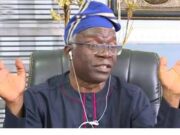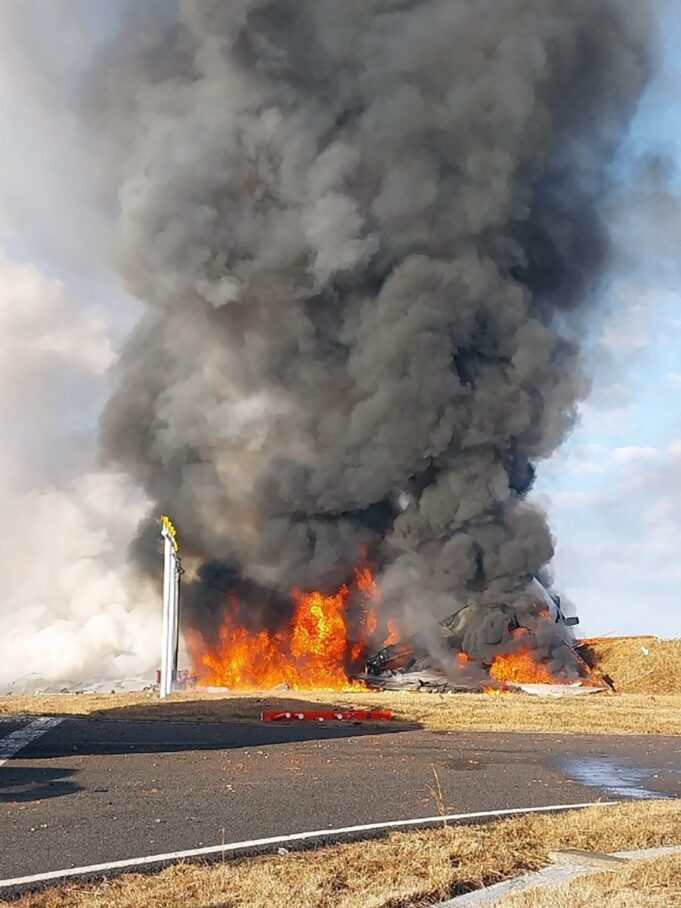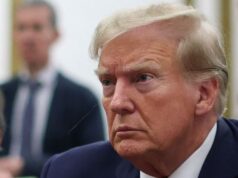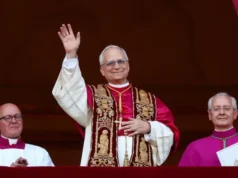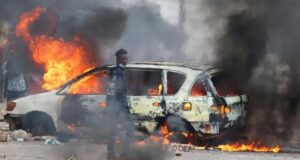South Korea’s political parties have agreed to establish a joint task force to investigate the deadly crash of a Jeju Air flight that killed 179 people.
The incident has prompted the country’s transport minister to offer his resignation.
The Boeing 737-800, which was en route from Thailand to Muan, South Korea, on December 29, crashed while attempting to land at a South Korean airport.
The aircraft, carrying 181 passengers and crew, made a belly-landing and collided with a concrete barrier, sparking a massive fire.
As the cause of the crash remains under investigation, a joint task force, composed of members from both the ruling People Power Party (PPP) and the opposition Democratic Party (DP), was announced on Tuesday.
The task force will investigate the crash’s causes and provide support to the victims’ families.
Transport Minister Park Sang-woo, who is facing political pressure after the tragedy, also announced that he plans to step down, though he has not yet determined the timing or method of his resignation.
His decision follows weeks of political instability, heightened by President Yoon Suk Yeol’s brief declaration of martial law last month.
The investigation will be led by a 15-member team, with seven members from the PPP, seven from the DP, and one independent member.
Both parties confirmed the creation of the task force, which will delve into the cause of the crash.
Minister Park expressed a deep sense of responsibility over the disaster. “As the minister in charge of aviation safety, I feel a heavy sense of responsibility,” he told reporters.
A spokesperson from the Ministry of Land, Infrastructure, and Transport confirmed that Park had formally offered his resignation.
Investigators are looking into several possible factors that might have contributed to the crash, including a bird strike, malfunctioning landing gear, and the runway barrier. The pilot had reported a bird strike before aborting the first landing attempt.
During the second attempt, the landing gear failed to deploy, leading to the crash.
Authorities have found feathers in one of the engines, but lead investigator Lee Seung-yeol cautioned that the bird strike alone might not have caused the engine failure.
“We need to check whether both engines were affected,” he said.
In response to the crash, authorities have raided offices at Muan Airport, as well as a regional aviation office and Jeju Air’s headquarters in Seoul.
The CEO of Jeju Air has also been prohibited from leaving the country.
In a related move, Jeju Air announced that it would reduce 188 international flights departing from Busan in the first quarter of 2025 as part of efforts to improve operational safety.
This follows an earlier decision to cut flight operations by 10-15% by March.



